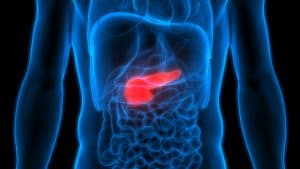
Xarelto succeeds in new study
pharmafile | November 14, 2011 | News story | Sales and Marketing | Bayer, FDA, J&J, JJ, Xarelto
In a new study J&J and Bayer’s blood thinner Xarelto reduced deaths in patients after a heart attack, which could open up the drug to a new $1 billion market.
Specifically, the combination of oral Xarelto (rivaroxaban) twice daily with standard antiplatelet therapy, significantly reduced cardiovascular death, heart attack and stroke in patients with acute coronary syndrome (ACS) compared to those receiving standard antiplatelet therapy.
In addition a lower dose of Xarelto (2.5 mg), in combination with standard therapy, significantly reduced mortality over standard therapy alone.
Overall, the drug reduced heart attacks, strokes, and cardiovascular deaths by 16%, but this was only seen in the lower dose.
The drug also saw a high level of bleeding in some patients, with a particular risk of some bleeding in the brain, and the study suggests that the lower dose may come with a lower bleeding risk.
The FDA approved the drug earlier this month to reduce the risk of stroke in people who have non-valvular atrial fibrillation.
In June the FDA approved Xarelto to reduce the risk of blood clots, deep vein thrombosis, and pulmonary embolism following knee or hip replacement surgery.
With these licences the drug is expected to make both firms $3.5 billion in peak annual sales.
But the success of the Phase III ATLAS ACS 2-TIMI 51 trial will go towards adding to these licences to treat patients with acute coronary syndrome, which both firms plan to do by the end of the year.
According to analysts this could open up the drug to a new market worth $1 billion, but it will come up against major competition.
If cleared for ACS, Xarelto would enter a market that includes AstraZeneca’s Brilinta (ticagrelor) and Lilly’s Effient (prasugrel).
These drugs are a next-generation version of Sanofi’s standard treatment Plavix (clopidogrel), which will most likely be used in conjunction with Xarelto.
C. Michael Gibson, principal investigator in the ATLAS ACS studies, said: “For more than a decade ACS patients have been effectively treated with a low-dose aspirin given in combination with a thienopyridine to help reduce their risk of a recurrent cardiovascular event.
“This study showed that by adding the oral Factor Xa inhibitor rivaroxaban to standard therapy, this risk is greatly reduced, resulting in a significant reduction in mortality.
“If the data from ATLAS ACS 2-TIMI 51 were extrapolated into clinical practice, we could potentially see one life saved for every 56 patients treated with this combination of therapies over a two year period.”
Ben Adams
Related Content

Roche’s Alecensa approved by FDA as lung cancer treatment
Roche has announced that the US Food and Drug Administration (FDA) has approved Alecensa (alectinib) …

GSK’s meningococcal vaccine candidate accepted for FDA review
GSK has announced that the US Food and Drug Administration (FDA) has accepted for review …

FDA grants ODD to Candel Therapeutics’ pancreatic cancer treatment
Candel Therapeutics has announced that the US Food and Drug Administration (FDA) has granted Orphan …







